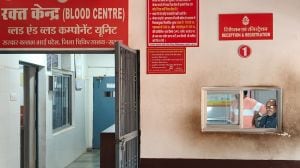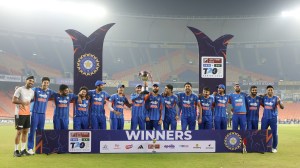In what is being seen as a significant achievement for the transgenders (Trityapanthis), 17 of them with no or insufficient documents have been able to finally apply for a voter’s identity card in Pune. Of them, 13 have applied under the ‘Other’ category, while four have applied under the ‘Male’ category.
The Supreme Court had recognised the country’s transgender community as the “third gender” — neither male nor female.
Since the “hijras” are not legally recognised, members of the transgender community are often ostracised, abused and forced into prostitution, says Bindu Madhav Khire, the coordinator of Sampathik Trust who has reached out to 200 such transgenders in Pune and Pimpri-Chinchwad as part of the HIV intervention and awareness programme.

To bring them into the mainstream, the court had directed to set aside reservation for transgender individuals in jobs and education and also entitled them to other rights like holding a passport, voter card and driving licence.
Since the supporting documents are under a male name most of the time, a majority of the transgenders face an identity crisis. “Since they are a migrant population, there is no proof of a permanent address,” says Tinesh Chopade, project manager at Pehchaan, which works for the transgender community. “Their application forms would get rejected and the community members were even ridiculed,” adds Chopade.
In the socio-economic survey of transgenders conducted in December 2013 and January 2014, Samapathik Trust found that 10 per cent of them do not have any document at all. This prohibited them from applying for any identification documents, Khire points out.
In July this year, the trust wrote to the district collector and requested that the government should allow Tritiyapanthis to apply for voter card if they furnish a letter from the Samapathik Trust.
Tehsildar Seema Holkar helped the applicants and said after the submission of these forms officials of the Election Commission would order verification of the place of residence of the applicants.
Story continues below this ad
They would make a surprise visit to the residence mentioned in the application and verify that the applicant stays there. If satisfied, the applicant will get the voter’s I-card.
Chopade, along with Parikshit Shete and Vaiju, field officers of the trust, were able to register the applications on behalf of the 17 transgender individuals.
“We were also able to register applications of transgenders for the voters I-card by providing information on guru/chelas etc instead of specifying parents’ names etc in the application form,” adds Khire. If all goes well, the applicants are likely to receive their voter I-cards in three months’ time.








